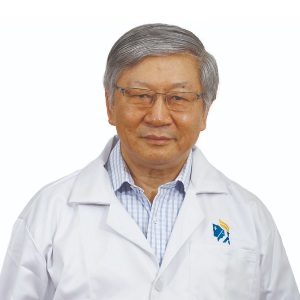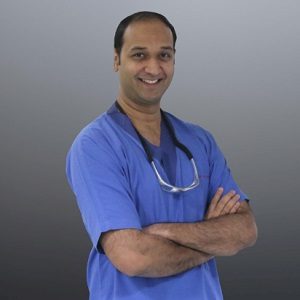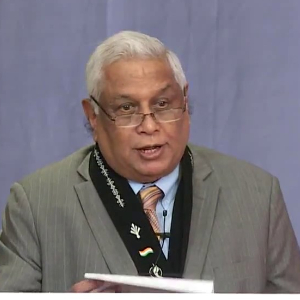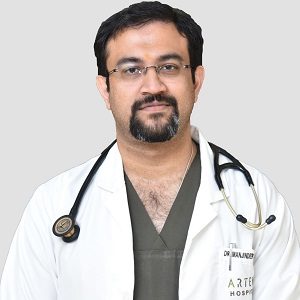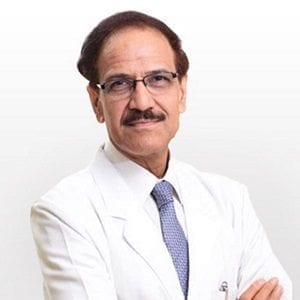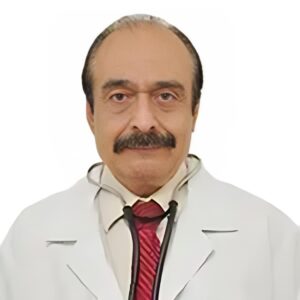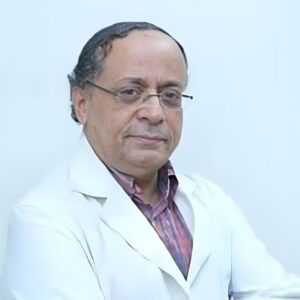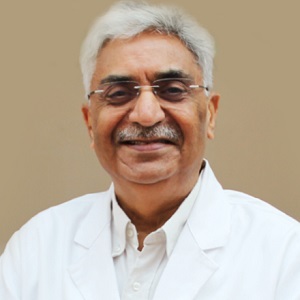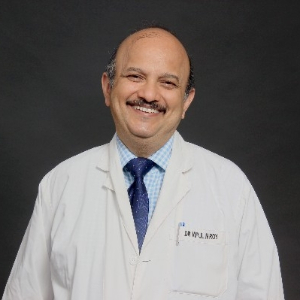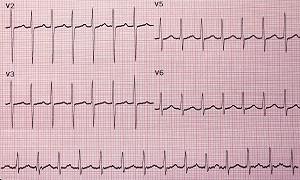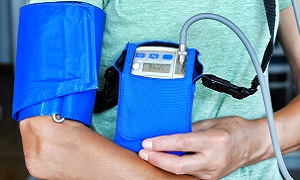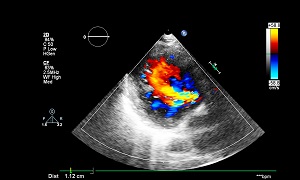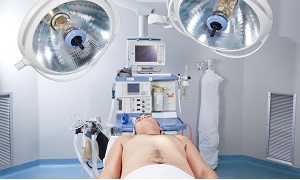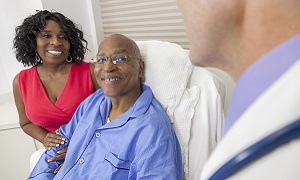Best Permanent Pacemaker Implantation Doctors in India
- Cardiologist, Apollo Hospitals Greams Road Chennai, India
- Over 35 years’ experience
- Apollo Hospitals Greams Road
Profile Highlights:
- Dr. Robert Mao is a distinguished Cardiologist with over 35 years of experience in the field, currently affiliated with Apollo Hospitals Greams Road in Chennai.
- His extensive career has earned him a reputation for excellence in cardiology, supported by an impressive array of qualifications and a strong track record of patient recommendations.
- Dr. Robert Mao’s extensive experience, diverse qualifications, and high patient satisfaction make him a leading figure in cardiology, dedicated to providing top-tier cardiovascular care.
- Interventional Cardiologist, Chennai, India
- Over 15 years’ experience
- Apollo Hospitals Greams Road
Profile Highlights:
- Dr. Sai Satish is a distinguished Senior Interventional Cardiologist affiliated with Apollo Hospitals in India, renowned for his pioneering contributions to the field of transcatheter valve therapies.
- His expertise extends internationally, as he also serves as a practicing interventional cardiologist and esteemed faculty member at the Gottsegen Institute of Cardiology in Budapest, Hungary, one of the world’s leading centers for TAVR (transcatheter aortic valve replacement) training.
- A trailblazer in the realm of minimally invasive cardiovascular procedures, Dr. Satish is celebrated for performing the highest number of percutaneous edge-to-edge mitral repairs (MitraClip implants) in the Indian subcontinent.
- Interventional Cardiologist, Mumbai, India
- Over 40 years’ experience
- Lilavati Hospital & Research Centre
Profile Highlights:
- Dr. Samuel Mathew is famously known as the Father of Angioplasty in India for being the first to introduce the procedure in the country.
- He is a renowned interventional cardiologist and brought in several innovative techniques of angioplasty with coronary Stenting, Carotid Stenting, Percutaneous Bypass, Rotablator Atherectomy, and other such procedures.
- Dr. Mathew holds over 4 decades of experience in interventional cardiology and has performed more than 10,000 angioplasties till date. He also holds the credit for more than 3000 Intra Coronary Stenting and 800 Rotablation cases.
- Interventional Cardiologist, Gurugram, India
- Over 15 years’ experience
- Fortis Memorial Research Institute
Profile Highlights:
- Dr. Sanjat Chiwane is an MCI Certified young cardiologist in Gurugram.
- His career success measured 1200+ coronary angioplasties, 100 Balloon mitral valvuloplasties, and 100 renal angioplasties.
- Continuing with his meticulous career, the doctor also worked as a Clinical Instructor in Medicine and Cardiology at Mumbai University. He added Organ Transplantation to his expertise.
- Top Interventional Cardiologist | BLK Hospital, New Delhi, India
- 30+ Years Experience
- BLK Super Specialty Hospital, New Delhi
Profile Highlights:
- Dr. Subhas Chandra is a leading Interventional Cardiologist in Delhi presently associated with BLK-Max Super Speciality Hospital as the Chairman and Head of Cardiology.
- He has over 30 years of experience and specializes in coronary interventions, endovascular interventions, device implantation, and structural heart diseases.
- He has performed more than 25,000 coronary interventions (complex angioplasty and rotablation), 4000+ for structural heart diseases, and has done more than 3000 permanent pacemaker implants.
- Dr. Chandra’s knowledge of interventional cardiology is enormous and he has served both as a consultant and teacher of cardiology in some of the most prestigious medical hospitals and colleges in India.
- Cardiologist
- Over 52 Years Experience
- Apollo Hyderabad
Profile Highlights:
- Dr. Sudhir Naik is a top cardiologist in Hyderabad and is among the most experienced doctors in the field.
- As a Senior Consultant of Cardiology at Apollo Health City, Hyderabad, Dr. Naik brings a plethora of experience to his profession.
- With an experience of over 52 years, Dr. Sudhir Naik stands as a well-renowned specialist who provides a range of treatments to address a variety of issues related to cardiology.
- Committed to providing complete cardiac care, Dr. Sudhir Naik specializes in treating ailments like chest pain, heart failure, hypertension, coronary artery disease, arrhythmia, etc.
- He is quite efficient in performing complex procedures like TAVR (Transcatheter Aortic Valve Replacement) and high-risk procedures like angioplasties.
- In addition to his clinical expertise, Dr. Sudhir Naik also stands as a prolific researcher. He has contributed to many national and international journals, demonstrating his dedication to the advancement of cardiac science.
- Cardiologist, Hyderabad, India
- Over 25 Years Experience
- Apollo Hyderabad
Profile Highlights:
- Dr. Sunil Kapoor is a highly esteemed Cardiologist based at Apollo Hospitals Jubilee Hills in Hyderabad, boasting over 25 years of dedicated experience in his field.
- He is well-qualified with an MBBS, DM in Cardiology, MD in General Medicine, MNAMS, and holds the prestigious Fellow of the American College of Cardiology (FACC) designation.
- Interventional Cardiologist, Electrophysiologist; Gurugram, India
- Over 37 years’ experience
- BLK Super Specialty Hospital, New Delhi
Profile Highlights:
- Dr. T. S. Kler, a Padma Bhushan awardee, stands as a luminary in the field of cardiology with over 37 years of exemplary service.
- As the Chairman and Head of the Department at BLK-Max Heart & Vascular Institute, and the Chairman of Pan Max Electrophysiology, he has been at the forefront of cardiac care, pioneering numerous advanced procedures.
- Dr. Kler’s extensive experience includes performing more than 35,000 coronary, renal, carotid, and peripheral angioplasties.
- Senior Consultant - Interventional Cardiologist
- Over 40 Years Experience
- Apollo Hyderabad
Profile Highlights:
- With an extensive experience of more than 40 years in the field of Cardiology, Dr. Tripti Deb stands as one of the most renowned cardiologists in Hyderabad.
- Currently serving as a Senior Consultant of Interventional Cardiology at Apollo Health City, Hyderabad, Dr. Deb is known to treat all her patients with great empathy and cooperation.
- Her expertise lies in treating a wide range of heart ailments like heart attack, heart failures (cardiomyopathy), hypertension, coronary artery disease, peripheral vascular disease, valve disorders, arrhythmia, and much more.
- She is extremely proficient in diagnosing various cardiac conditions utilizing multiple tests including physical examinations, TMT (exercise test), ECGs, blood tests, etc. Based on the results and her diagnosis, she suggests a course of therapy to her patients that includes lifestyle, dietary, and stress-reduction recommendations along with the primary treatment.
- Throughout her career, Dr. Deb has performed several complex and demanding procedures like ASD device closure, ECMO support, Implantable Cardioverter Defibrillator or pacemaker, Balloon Mitral Valvuloplasty, Cardio version, Coronary Angiogram, TAVI/TAVR, Complex Angioplasties, Intravascular Lithotripsy, etc.
- Top Interventional Cardiologist | Apollo Hospital, New Delhi, India
- 30+ Years Experience
- Indraprastha Apollo Hospital, New Delhi
Profile Highlights:
- Dr. Vipul Narain Roy is one of the best practicing Cardiologists in India, currently associated with the Indraprastha Apollo Hospital in New Delhi.
- After completing his MD, Dr. Roy travelled to UK where he spent eight years in Liverpool at Regional Adult Cardiothoracic Center.
- In 1994, he came back to India and joined Interventional Cardiology at Escorts Heart Institute in New Delhi as a consultant.
Best Pacemaker Implantation Hospitals in India
Pacemaker Implantation
Pacemaker is a small device that is implanted under the skin in the chest which monitors the heartbeat & controls the heart rhythm.
A pacemaker has two parts:
1. The pulse generator- This is small metal container that houses the battery & the electrical circuit that regulates the rate of electrical pulses sent to the heart.
2. Electrodes or leads- They are insulated wires placed in the heart chambers which delivers electrical pulses to adjust the heart rate.
Types of Pacemakers
There are three types of Pacemakers:
- Single Chamber Pacemaker- They carry electrical impulses from the generator to the right ventricle of the heart.
- Dual Chamber Pacemaker- They carry electrical impulses from the generator to the right atrium & right ventricle, both.
- Biventricular Pacemaker- They simulate the right & left ventricles both, so that the heart beats more efficiently. It is a treatment option for people suffering from heart failure.
Indications for Pacemaker
Pacemakers are used to treat the following:
- Cardiomyopathy
- Heart failure
- Slow heart rhythms also known as bradyarrythmia.
- Syncope
Tests done before Pacemaker Implantation
Electrocardiogram
Holter Monitoring
Echocardiogram
Stress Test
Pacemaker Implantation procedure
Before the procedure
- Do not eat or drink anything after midnight the evening before the procedure.
- Stop taking certain medications like diabetes 1 to 5 days before the procedure.
During the procedure
Pacemakers are implanted in 2 ways:
- Endocardial approach- This approach is commonly used for pacemaker implantation. In this approach, local anaesthesia is administered to numb the area where an incision is made. Through an incision the lead is inserted into a vein, then advanced to the heart with the help of the x-ray machine. One end of the lead is attached to the heart muscle, while the other end of the lead is attached to the pulse generator, which is placed in a pocket created under the skin in the upper chest.
- Epicardial approach- This approach is commonly used in children. In this approach, general anaesthesia is administered. One end of the lead is attached to the heart muscle, while the other end of the lead is attached to the pulse generator, which is placed in a pocket created under the skin in the abdomen.
After the procedure
Special precautions
- Avoid placing the cell phone directly over the pacemaker implantation site when the phone is turned on.
- Avoid leaning against a metal-detection system.
- If a doctor is considering any medical procedure that involves intensive exposure to electromagnetic energy like magnetic resonance imaging, therapeutic radiation for cancer treatment, tell him /her about the pacemaker implanted.
- Stand at least 2 feet from welding equipment, high-voltage transformers or motor-generator systems.
FAQs
1. What is the recovery time for a pacemaker surgery?
The recovery time for a pacemaker surgery is 3-4 weeks.
2. Do cell phones interfere with pacemakers?
It is safe to use a mobile phone, but make sure it is kept at a distance of more than 6 inches from the pacemaker.
3. For how long do the pacemaker batteries last?
Most pacemaker batteries last for 6 to 10 years.
4. How often will the patient need follow-up appointments?
- The follow- up appointments may be every 3 to 12 months, depending on the type of pacemaker you have and how well it works

